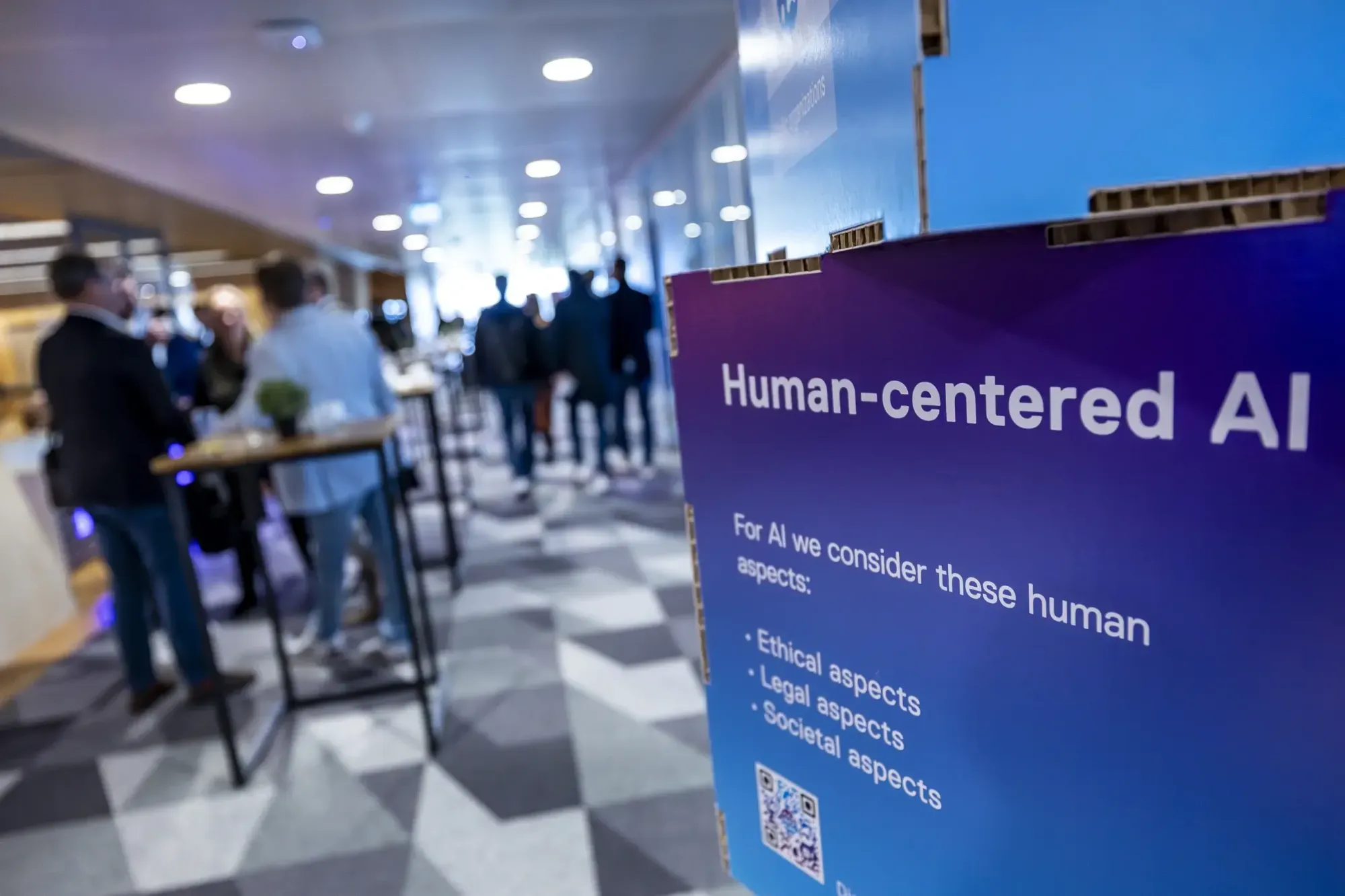What are the pros and cons of Artificial Intelligence (AI) and will it actually make the world a better place, or not? Will AI soon help you with your job? What about the influence of Big Tech? And is AI actually political?
We speak with Elia Formisano, a neuroscientist at Maastricht University and affiliated with BISS at the Brightlands Smart Services Campus. He wants to better understand how our brains work and use AI not only to research that, but also to develop practical applications that really help people. Such as smart technology that recognizes sound: from breaking glass to a crying baby.
Meet the expert
- Who? Elia Formisano
- Function: Professor of Neuroscience at Maastricht University
- Expert in: Brain signals, hearing, speech and neural AI
- Works on: AI systems that recognize sound for applications in healthcare and smart homes, among others
AI that can recognize sound
As Elia begins to talk about his research, I have to move my laptop to another room. Outside, they are cutting down trees, and Elia uses the example to describe the relevance of his work. Training AI systems to recognize sounds is not easy, but it is important. "Sound is everywhere," Elia explains.
Formisano's team is working on technology that can not only classify sound, but also describe what is happening. 'We all know subtitles that say: *[music plays]* or *[dog barks]*. Now this is added manually, but imagine a system that adds context. It recognizes that a baby is crying or the doorbell rings. That could be very helpful, for example, as an application in smart homes in which AI recognizes that a glass breaks or a baby starts crying. Then the system can alert a parent or caregiver. That's where we want to go."

Your brain in a computer model
Elia Formisano works on Neuro-AI. This field focuses on building AI models inspired by how the human brain works. "You don't really understand it until you can recreate it," Elia says. Step one is to study the brain. Elia does that at Maastricht University's Department of Cognitive Neuroscience. Step two is to develop models that imitate the brain. That's what MaCSBio does. And step three is applying these models in the "real world. That happens at the Brightlands Smart Services Campus, at BISS.
AI is the way for Elia to better understand the brain. 'With computers, we try to figure out how the brain processes information - for example, sound or language by mimicking this in computer models. This allows us to learn more and more about how our own brain functions.' Through AI, they can test new insights faster, safer and easier in applications for healthcare or communication, for example, which is called 'in-silico testing.'
"You don't understand it until you can fake it"
The future of AI
According to Formisano, there are two lines of development in AI. 'Robotics is getting bigger, think healthcare robots or smart assistants in the home. But language models like ChatGPT are also developing rapidly - though they remain limited. The future of AI lies in systems that can actually function in real-world situations. That means: models that can recognize sounds in all kinds of environments, from hospitals to living rooms. And robots that can recognize sounds and respond to them - little of that happens now.'
It appears easy to get AI to do something in a controlled environment, but in realistic situations - with noise, unexpected sounds or multiple sound sources - it becomes complex. Elia: "We are currently at the point where we can get AI to recognize a single sound, but we have secured a large European grant for our research and we want AI to soon recognize more sounds at once. Just like your brain does: on the beach you hear the waves, the people ánd the wind, and you can distinguish them all.'
Deepening further
Elia Formisano: "AI can help us better understand the brain - and that's a unique opportunity for a neuroscientist like me. But, like the brain, AI models are complex. So when you read about AI, don't just read the headline, but try to delve deeper. It's progress, but there are limitations.'
Is AI a curse or a blessing?
'Every technology has risks, but AI is progress,' Elia says. 'It helps us understand the brain better, and that's crucial. Because the more we understand about the brain, the better we can help people, for example, people who suffer from deafness or are hard of hearing. Thanks to AI, things are moving much faster now. We just have to make sure we use it in a responsible way, and that's up to us.'
This article is part of a series by the Brightlands AI Hub, in which experts answer questions about artificial intelligence. This series offers in-depth insights into the impact of AI on different industries, the latest trends, and practical applications of AI technology.